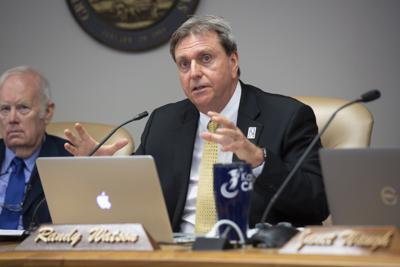The following is a recap of the July 2022 Kansas State Board of Education business meeting:

- Budget Recommendations: The State Board approved a series of budget recommendations that will now go on to Governor Kelly for consideration in the development of the Fiscal Year 2024 budget, which begins July 1, 2023. Two recommendations of note include:
- BASE Funding: Funding the Base Aid for Student Excellence (BASE) as established by state law and approved by the Kansas Supreme Court. This amounts to approximately $5,006 for the 2023-24 school year. The BASE amount is determined by a three-year average of the consumer price index (CPI). Given the current rates of inflation, it is likely this amount will increase.
- Special Education: A five-year phase-in approach to fully funding special education at the 92% level set in state statute. Special education has not been funded at this level since the 2010-11 school year. It is currently funded at 70.8% for the 2022-23 school year, but it will drop to 64% in 23-24. This percentage decrease is the result of reduced funding from the federal level coupled with increased costs to provide special education services and flat funding from the state. The five-year phase-in comes out to an additional $76.8 million allocated each year.
- The complete list of budget recommendations from the State Board of Education can be found here.
- Assessment Scores: Dr. Neal Kingston, Director of the Achievement and Assessment Institute provided cut score recommendations for the grade 10 math assessment. He reiterated once again that Kansas has the highest cut scores on state assessments in the country, but the process by which the cut scores are determined is used by more than 30 states. The process involves Kansas high school math educators, and the cut scores are determined by consensus of these educators. There was discussion by the board about the confusion surrounding what the cut scores mean in terms of whether a student is prepared for life beyond high school. The federal reporting requirements factor into this confusion as they break student readiness into two categories into proficient and not proficient. For these reporting requirements, KSDE reports students in levels 1 and 2 as not proficient and 3 and 4 as proficient despite it not being entirely accurate. It was made clear that students who fall in level 2 typically go on to score well on the ACT or can demonstrate readiness in other ways. In other words, assessment scoring is just one measurement of a student’s ability to succeed after graduation.

Randy Watson (AP photo)
- Themes that emerged from the 50-city tour: Commissioner Watson conducted a 50-city tour in 2021 as a follow-up to his initial Kansans Can tour that he did in 2015. They collected data from 3,455 respondents to a series of questions asked during each tour stop. It was determined that the majority of respondents agreed with the competency wheel, which identifies characteristics of a successful student after high school. These competencies include academic and nonacademic skills as well as the health and wellbeing of the individual. Additionally, from the responses, five central themes to producing successful high school graduates emerged: 1) community relations and engagement (i.e. partnerships/collaborations between the school districts, parents, and the community); 2) Educator-centered supports (i.e. offering better pay; updating teacher prep programs; ensuring classroom autonomy); 3) System-wide needs (i.e. recruiting and retaining qualified teachers and staff; prioritizing mental health needs; reducing class sizes); 4) Leadership and policy (i.e. leadership at all levels and policy that support educators and enable system change); 5) Enhance student learning and success (i.e. reducing emphasis on traditional testing; adapting traditional structures; providing individualized learning). These core themes will be used to helped guide future goals of the State Board.
- Retiree Licensure Change: In an effort to address the teacher shortage, the board unanimously adopted a change to policy pertaining to licensing for retired teachers. With the change, retired teachers with an expired license can now receive a transitional license for the 2022-23 school year upon successful completion of a background check. The application fee is waived. The only cost for the license is the fee associated with running the background check.
- Financial Literacy Standards: On a 9-1 vote, they adopted new financial literacy standards. These standards are not beholden to a specific teacher or grade level. Instead, they are incorporated with grade bands. The standards along with financial literacy resources are published on the KSDE website.
- School Redesign: 18 schools were unanimously approved for the Apollo I, II, and III launches for the 2022-23 school year. After starting with the Mercury schools five years ago, a total of 194 Kansas schools have participated in redesign with 175 of those schools on track to complete and/or have completed a redesign plan year. KSDE staff reported some apprehension for redesign and some districts have been pressured to revert to traditional processes, but KSDE has plans to continue working to build confidence in the redesign process. More information about redesign can be found here.


